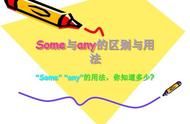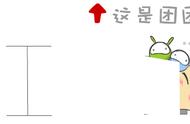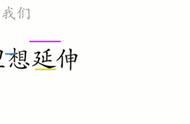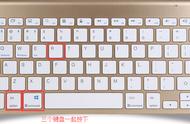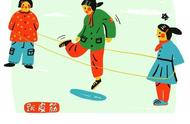代词是语法结构中的重要一环,代词是用来起替代作用的。
高考的热点:近几年来对代词的考查比较多:
1.代词的漏用、误用;
2.各种人称代词的主格、宾格形式;
3.某些不定代词、指示代词的特定用法;
4.it的用法;
5.从句中连接代词用法、.关系代词的用法及区别等
近五年,代词的考查点集中在不定代词及指示代词上,考查角度有两个:
一是考查它们相互间的意义和功能差别,如:a11,everything和anything等的意义差别.it that和one不同的指代功能;
二是它们之间语法特征的差异,如it(代词)和which(关系代词)的区别。
it的用法考查着重在其作形式宾语或形式主语上,另外一些特定的句型结构也该引起注意,如强调句型以及前面提到的有关句型。再就是要注意it和定语从句中关系代词 which引导非限制性定词从句代替主句一句话的意思时的区别。

人称代词的主格在句中作主语,宾格在句中作动词或介词的宾语。
(1)My grandma still treats me like a child. She can’t imagine ______
grown up.
A. my B. mine C. myself D. me
解析:由语境可知“她没想到我已成年了””,应当用宾格me作imagine的宾语;短语形容词grown up(成熟的,成年的)作宾补。答案是D。
(2)Catherine bought a postcard of the place she was visiting, addressed
______ to______ and then posted it at the nearby post office.
A. it; her B. it; herself C. herself; her D. herself; herself
解析:由address sth. to sb.
(在信件或包裹上写上收件人的姓名及地址)可知,Catherine在买来的明信片上写上她自己的姓名及地址。答案是B。
Note:下列情况也用宾格:
①在be后作表语。
—Who is it? —It’s me. —谁?—是我呀。
②在单独使用或带not的简略回答中。如:
—Who broke the cup? —谁打破了杯子?
—Me! (Not me!)—我!(不是我!)
—I like swimming. —我喜欢游泳。
—Me too. —我也是。
③在感叹疑问句中做主语,以引起强调。如:
—You can tell him. —你可以告诉他。
—Me tell him? Not likely!—我告诉他?不可能!
④在下列之类的祈使句中:
He’s got to repay the money—poor him.他得偿还这笔钱——可怜的他呀!
形容词性物主代词只能在名词前作定语,名词性物主代词相当于“形容词性物主代词+名词”,在句中作主语、宾语、表语或与of连用作后置定语,但不能作定语。
(1) Some of the stamps belong to me, while the rest are _____.
A. him and her B. his and hers C. his and her D. him and hers
解析:在句中作表语,指“他的邮票和她的邮票”用his and her (=his stamps and her stamps)。答案是B。
(2)—Is your camera like Bill’s and Ann’s?
—No, but it’s almost the same as ______.
A. her B. yours C. them D. their
解析:与it(=my camera)相比的应是your camera,与“形容词性物主代词 名词”相当的应是名词性物主代词,yours=your camera。答案是B。
反身代词在句中可以作enjoy, teach, hurt, buy, introduce等动词和by, for, to等介词的宾语,还可以作主语或宾语的同位语,可译作“亲自,本人”,但不能作主语。
(1 ) —Who called me this morning when I was out?
—A man calling ______ Robert.
A. him B. himself C. his D.不填
解析:考查反身代词。因为“call sb./oneself 某名”就是“叫某人/自称某名字”;句意是“一个自称罗伯特的人”,用himself。答案是B。
(2) (13)You will find as you read fiats book that you just can’t keep some of
these stones to ______. You will want to share them with a friend.
A. itself B. yourself C. himself D. themselves
解析:主语是you,要用yourself;to oneself是习语,指某人“独自享用,不与他人共享”。答案是B。
(3)Tom felt that he knew everybody’s business better than they knew
it______.
A. themselves B. oneself C. itself D. him
解析:能与they相呼应,并作they的elf同位语的,用反身代词themselves。答案是A。
提示:
请留意意含oneself的短语。如:(1) be oneself身体正常;(2)Make yourself at home!
别客气!(3)make yourself understood 使你的话被人理解。
指示词有this, that, these, those等。注意以下4点:
(1) this, these是时间或空间上的“近指”,可与here连用;that, those是时间或空间上的“远指”,可与there连用。
(2) 指上文提到的事一般用that,有时也用this,指下文的事只能用this。
(3) 打电话时,用this来介绍自己,用that来问对方,不用I或you。
(4) this和that还可表示程度,意为“如此,那么”,相当于so,作状语。
(1) —He was nearly drowned once.
—When was ______?
—_____was in 1998 when he was in middle school.
A. that; It B. this; This C. this; It D. that; This
解析:指上文提到的事多用that;后空是强调结构的简略式,完整的句是It was in was in 1998 when he was in middle school that he was nearly drowned once.其中when he was in middle school是定语从句。答案是A。
(2)Sometimes it was a bit boring to work there because there wasn’t
always ______ much to do.
A. such B. that C. more D. very
解析:much前用so, 不用such。口语中,常用that来代替so。答案是B。
疑问代词有what, which, who, whom, whose等。用法要点如下:
1. what除可用来询问人的身份外,一般指物;which可指人也可指物;who, whom, whose一般指人。
(1) The mother didn’t know ______to blame for the broken glass as it
happened while she was out.
A. who B. when C. how D. what
解析:blame(责备)是及物动词,缺宾语,责备的应是打碎玻璃的人,该用who。答案是A。
2. 没有一定的范围时,用what,意为“什么”;有一定范围时,用which,意为“(其中的)哪一个”。
(2)There are so many kinds of tape-recorders on sale that I can’t
make up my mind ______to buy. (1992全国)
A. what B. which C. how D. where
解析:buy缺宾语,排除副词C和D;表示在一定范围中不知买哪能一种,用which。答案是B。
1. 表示两者“都”用both,表示两者“都不”用neither,表示两者中的“任一”用either。
(1)If you can’t decide which of the two books to borrow, why don’t you take ______? I won’t read them this week.
A. all B. any C. either D. both
解析:由前后语境来看,应是建议对方将两本书都拿去看。答案是D。
(2)You may drop in or just give me a call. ______ will do.(2006安徽)
A. Either B. Each C. Neither D. All
解析:由前句可知是指两者中的“任何一个”,用either。答案是A。
(3)—Which driver was to blame?
—Why, _________! It was the child’s fault, clear and simple. He suddenly came out between two parked cars.
A. both B. each C. either D. neither
解析:由后文It was the child’s fault, clear and simple.可知,应答者认为“两个司机都不应负责”,用neither。答案是D。
(4)There are two windows in the room. They ________face south.
A. all B. both C. each D. either
解析:指“两者都”用both。答案是B。
(5)I made a call to my parents yesterday. To my disappointment, _____of them answered it.
A. either B. none C. neither
D. nobody
解析:由my parents可知是指两者,由To my disappointment可知,两个中一个也没接电话。答案是C。
(6)We asked John and Jerry, but _____of them could offer a satisfactory
explanation.
A. either B. none C. both D. neither
解析:由but可知,John 和Jerry“两者都不”。 答案是D。
(7) I invited Joe and Linda to dinner, but ______ of them came.
A. neither B. either C. none D. both
解析:因为指Joe和Linda两个人,排除C;又由but可知,她们两个人一个也没来,所以选neither。答案是A。
(8) Both teams were in hard training, ______ was willing to lose the game.
A. either B. neither C. another D. the other
解析:“两队都在努力训练”当然是“两队都不愿输”,表示“两者都不”用neither答案是B。
(9)-Can you come on Monday or Tuesday?
-I’m afraid ______day is possible.
A. either B. neither C. some D. any
解析:由I’m afraid可知,Monday和Tuesday两天都不行。答案是B。
(10)-Are the two answers correct?
-No, ________correct.
A. no one is B. both are not C. neither is D. either is not
解析:由two和No可知“两个答案都不对”,no one(=nobody)只能指人,排除A;both are not
correct是部分否定,意为“并非两者都对(即一对一错)”,与no矛盾,排除B;英语中有not…either(=neither)的说法,但不能说either…not,排除D;表示完全否定“两者都不”用neither。答案是C。
(11)-There’s coffee and tea; you can have _____.
-Thanks.
A. either B. each C. one D. it
解析:指coffee和tea两者中的“任何一种”用either。答案是A。
(12)-Do you want tea or coffee?
-______.I really don’t mind. (2000北京春)
A. Both B. None C. Either D. Neither
解析:由上文tea or coffee可知,是指两者;由I really don’t mind 可知,这两种饮料中的“任何一种”都行。答案是C。
(13)-Shall I sit at this end of the boat or the other end?
-If you keep still, you can sit at ________end.
A. neither B. each C. either D. any
解析:boat应当是两端,表示“你可坐在任一端”,“(两者中的)任一”是either。 答案是C
2. 表示多者“都”用all,表示多者“都不”用none,表示多者中的“任一”用any。
(1)Of all the books on the desk, ______ is of any use for our study.
A. nothing B. no one C. neither D. none
解析:考查不定代词。由all可知,是指三者或三者以上,排除C;nothing(没一样东西)与这里谈到的“书”毫无联系,排除A;no
one =nobody(没有一个人)只能指人,也错了;指多者中“一个也没有,没有一个”用none。句中of any
use=useful,在句中作表语。句意是“在桌上的所有这些书中,没有一本书对我们的学习有用。”答案是D。
(2)I had to buy _____these books because I didn’t know which one was the
best.
A. both B. none C. neither D. all
解析:后文的best是最高级,可见至少有三本,排除A和C;none不能作定语,要说none of…答案是D。
(3)We had three sets of garden tools and we seemed to have no use for ______.
A. none B. either C. any D. each
解析:由three可知是指三套工具中的“任一套”。答案是C。
(4)—Which of the three ways shall I take to the village?
—_____way as you please. (2004福建)
A. Each B. Every C. Any D. Either
解析:关键词是three。表示三者或三以上的“任一”,用any;表示两者中的“任一”,才用either。答案是C。
(5)Mr Alcott, headmaster of the school, refused to accept______ of the three suggestions made by the Students’ Union.
A. either B. neither C. any D. none
解析:由three可知是三者,指三者中的任一,用any。答案是C。
(6)-When shall we meet again?
-Make it ________day you like; it's all the same to me.
A. one B. any C. another D. some
解析:指“你喜欢的任何一天”,表示“(多者中的)任一”用any。答案是B。
(7)They were all very tired, but ______of them would stop to take a rest.
A. any B. some C. none D. neither
解析:由all可知是三者或三者以上,由but可知是“没有一个人”愿停下来休息。答案是C。
(8)______ but fools will believe what he said.
A. None B. Nothing C. Anything D. Everything
解析:句意是:“除了白痴没有一个人会相信他讲的话。”答案是A。
(9)Canada is larger than ______ country in Asia.
A. any B. any other C. other D. another
解析:“加拿大比亚洲任何一个国家都大。”表示三者以上中的“任一”用any;Canada不属亚洲,不用other。答案是A。
3. none可指人或物,一般要接表示范围的of短语,可回答how many;而no
one只能指人(=nobody),不能接of短语,可回答who。另外,none可指后文的不可数名词,表示“毫无”。
(1)Some people would rather ride bicycles as bicycle riding has _____of the trouble of taking buses.
A. nothing B. none C. some D.
neither
解析:由句意“有些人宁愿骑自行车,因为骑自行车没有乘公共汽车那样的麻烦。”可排除选项C;the trouble是不可数名词,怎么会有两者或几者呢?排除选项D;nothing意为“什么也没有”,意义不通,排除A;答案是B。
(2)______of them knew about the plan because it was kept a secret.
A. Each B. Any C. No one D. None
解析:“因为是秘密所以没有人知道那个计划。”而no one又不能与of短语连用。答案是D。
(3)We couldn't eat in a restaurant because ________of us had ________money on us.
A. all; no B. any; no C. none; any D. no one; any
解析:选项A的all…no是部分否定,意为“并非都没有钱”,也就可以在餐馆吃饭;英语中没有any…no/ not搭配,排除B;no one不与of短语连用,排除D。答案是C。
4)As we were asleep, ________of us heard the sound.
A. both B. none C. all D. any
解析:“因为我们睡着了,所以我们没有一个人听到了声音。”答案是B。
(5) ______of them understood the old foreigner.
A. Someone B. Anyone C. None D. Nobody
解析:选项中能与of短语连用的只有none。答案是C。
4. all单独使用,或者后接一个定语从句,或者前面有物主代词时,意为everything或the only thing(s)。
(1)That’s an unpleasant thing to say about your father after______ he’s done for you.
A. something B. anything C. all D. that
解析:句意应是“在你父亲为你付出这一切之后,你这样说他,这是件不愉快的事。”表示付出“一切”“所有”应当用all
(=everything);he’s done for you是定语从句,修饰all。答案是C。
(2)It is easy to do the repair. _____you need is a hammer and some nails.
A. Something B. All C. Both D. Everything
解析:句意是“你只需要锤子和钉子”;选all,其后接you need,表示“唯一的事物(=the only thing)”。答案是B。
(3)—You're always working. Come on, let's go shopping.
—______you ever want to do is going shopping.
A. Anything B. Something C. All D. That
解析:受一定语从句修饰,表示the only thing的只有all。答案是C。
表示“一些”,一般说来,肯定句中some,否定句中用any;但在表示请求、建议、劝请或希望对方作肯定回答的疑问句中用some。
(1)I asked him for some oil, but he hadn't ________.
A. any B. some C. no D. anything
解析:在某定句中用any。答案是A。
(2)Let us hope we can settle the matter without ________more trouble.
A. any B. a little C. some D. little
解析:without表否定,要用any。答案是A。
1. every只能作形容词,在名词前作定语;each可作形容词也可用代词,可用主语、宾语和同位语。
______ of the boys has got a pencil and some paper.
A. All B. Every C. Everyone D. Each
解析:由谓语has got是第三人称单数,可排除选项A;every是形容词,只能放在名词前作定语,不能作代词,排除选面B;everyone不能与of短语连用,排除选项C;each可作形容词,也可作代词。答案是D。
2. 表示“每隔”用every,不用each。如every three days每三天,every third day每逢第三天,every
other day每隔一天,every three meters每(隔)三米,every three minutes每(隔)三分钟。
These plants are watered ________.
A. each other day B. every other day
C. each of two days D. every of two days
解析:句意为“这些作物每隔一天浇一次水”,表示“每隔一天”应是every other day。答案是B。
a little和little修饰或代替不可数名词,与much相对,表示“多”;a few和few修饰或代替可数名词与many相对,表示“少”。a little和a few含肯定语气, little和few含否定语气。一般说来,在only, just, still, quite, can not等词后用a little或a few;在very, so, some, the, no等词后用little或few。
(1)Can we do our work better with ______money and ______people?
A. lesser, few B. less, fewer C. little, less D. few, less
解析:money是不可数名词,排除D;people是可数名词,排除A和B。答案是C。
(2) —Would you like some wine? -Yes, just ________.
A. little B. very little C. a little D. little bit
解析:由yes和just可知,语气肯定,用a little (wine)。very little前不可再用just修饰。答案是C。
(3)As it was a stormy night, ________people went to see the film.
A. a few B. few C. several D. many
解析:“由于那是一个有暴风雨的晚上,所以很少人去看是影。”答案是B。
(4)Although he's wealthy, he spends ______on clothes.
A. little B. few C. a little D. a few
解析:由语境可知是替代不可数名词money,排除B和D;由although可知,在服装上花钱“少”,语气是否定的,排除C。答案是A。
(5)-Are the new rules working?
-Yes _______books are stolen.
A. Few B. More C. Some D. None
解析:由yes可知,新制度是奏效的,因此几乎没什么书被盗,所以用few;另外,None后要是加上of,也正确。答案是A。
little的比较级和最高级分别是less, least;few的比较级和最高级是fewer, fewest。
(6)If we had followed the plan, we could have done the job better with
____money and _____ people.
A. less; less B. fewer; fewer C. less; fewer D. fewer; less
解析:money是不可数名词,排除B和D;people是可数名词,排除A。答案是C。
(7)If we had followed his plan, we could have done the work better with
________money and ______ people.
A. little, fewer B. fewer, less C. less, fewer D. less, few
解析:由语境可知,little和few都用比较级,排除A和D;修饰people不能用little,排除B。答案是C。
(8) If you had followed the plan, you could have done the job better with
______ money and ______ people.
A. less; fewer B. fewer; less C. less; few D. few; less
解析:因few只能修饰可数名词,不能修饰money,排除选项B和D;由语境可知,是指用更少的钱和更少的人指事情做得更好,都用比较级,排除C。答案是A。
(9)Can we do our work better with ______money and ______people?
A. lesser, few B. less, fewer C. little, less D. few, less
解析:few不能修饰不可数名词money,排除D;less
(little的比较级)不能修饰可数名词money,排除C;由语境可知lillte和few都应用比较级,排除A。答案是B。
1. it和that都替代“the 单数名词(可数或不可数)”,都是特指,但it指前面提到的“同一”事物,而that是指前面提到的“同类”事物。
(1)There is a photo on the wall. ________the photo of Lei Feng.
A. It B. Its C. It's D. He
解析:指与前面提到的是同一物,用it;后句缺少谓语动词,用is。答案是C。
(2)The Parkers bought a new house but _____will need a lot of work before
they can move in.
A. they B. it C. one D. which
解析:特指前面提到的the Parkers所买的那座新房子,用it(=the house)。答案是B。
(3)Few pleasures can equal ________of a cool drink on a hot day.
A. some B. any C. that D. those
解析:that替代the pleasure,指与前面提到的同属“快乐的事”。 答案是C。
(4)I’m moving to the countryside because the air there is much
fresher than _____ in the city. (2005江苏)
A. ones B. one C. that D. those
解析:选项中只有that能替代不可数名词the air。答案是C。
2. one替代“a+单数可数名词”,表示泛指。特指的the one相当于that;the one复数形式the ones,在口语中也常用those代替;当后面有of短语时,一般用that或those,当有前置修饰语时,只能one(s),如the red one。one(s), the one(s), those, that都是替代“同类”事物,其中只有that可替代不可数名词。
(1)We’ve been looking at houses but haven’t found _____we like yet.
A. one B. ones C. it D. them
解析:one =a house, 指我们喜欢的那一类房子。答案是A。
(2)I prefer a flat in Inveneas to _____in Perth, because I want to live near my Mom’s
A. one B. that C. it D. this
解析:替代a flat用one。答案是A。
(3)We needed a new cupboard for the kitchen. So Peter made _____ from some wood we had.
A. it B. one C. himself D. another
解析:因为one是用来替代“a/ an 名词”,以避免重复的,此处one=a cupboard。答案是B。
(4)I hope there are enough glasses for each guest to have
________.
A. it B. those C. them D. one
解析:意思是“让每一个客人都有一个杯子”,能替代a glass是只有one。答案是D。
(5)—Why don't we take a little break?
—Didn't we just have ________?(2000全国)
A. it B. that C. one D. this
解析:由上文可知,答语应是Didn’t we just have a rest?(我们刚才不是休息了一会儿吗?);替代a
break用one。答案是C。
(6)Meeting my uncle after all these years was an unforgettable moment, ________I will always treasure.
A. that B. one C. it D. what
解析:用one替代a moment,作an unforgettable moment的同位语,泛指值得我珍惜的那样一个时刻。又如Cook was a strict but good captain, one who took good care of the sailors on his ship.答案是B。
(7)Cars do cause us some health problems —in fact far more serious _____ than mobile phones do.
A. one B. ones C. it D. those
解析:替代泛指的名词复数problems,用ones。those是替代特的“the 复数名词”的。答案是B。
(8)He has one blue pen and two red ________.
A. one B. once C. one's D. ones
解析:能替代pen,且为复数,应是ones。答案是D。
(9)My most famous relative of all, ______ who really left his mark on America, was Reb Sussel, my great-grandfather.
A. one B. the one C. he D. someone
解析:考查替代词。由语境可判断是特指,且作My most famous relative of all的同位语,用the
one。答案是B。
(10)Mr Zhang gave the textbooks to all the pupils, except ________who had
already taken them.
A. these B. ones C. the ones D. the others
解析:后面的定语从句是特指,替代the pupils用the ones(=those)。答案是C。
(11)Equipped with modern facilities, today's libraries differ greatly from______.
A. those of the past B. the past C. which of the past D.these past
解析:与today's libraries相比较的应是“过去的图书馆”,即the libraries of the past,为避免重复,用those替代the libraries。答案是A。
考点11 another, (the) other(s), else; the rest的用法辨析
1. another或“another+单数可数名词”泛指“另一个,有一个,再一个”,其复数形式是others或“other+复数名词”泛指“别人或别的物”,有some…others(一些…另一些…)之搭配。
(1)We had a picnic last term and it was a lot of fun, so let’s have ______one this month.
A. the other B. some C. another D. other
解析:考查不定代词。在one前作定语,表示“另/又/再一”,用another;而the other是特指两者中的另一个,不合语境。答案是C。
(2) I think he’s just going to deal with this problem ______ day.
A. next B. other C. following D.another
解析:表示“改天”用another day。但表示相对于过去或将来某天来说的“第二天”时,用the next day 或the
following day都可以。答案是D。
(3)—What do you think of the cake?
—It's nice. I'd like to have______.
A. some other B. another C. others D. other
解析:由语境可知,“我还想再吃一块”,表示泛指的“另一块”用another。答案是B。
2. the other( 单数可数名词)特指两者中的另一个,常有one…the other(一个…另一个…)的搭配;其复数形式the others或“the other +复数名词”特指在某些人或物中,除去一部分后,“其余的”“剩下的”人或物。
(1) No progress was made in the trade talk as neither side would acceptthe conditions of _____. 上
A. others B. the other C. either D. another
解析:由neither可知,谈话双方都不同意对方的条件,这个“对方”是特指的另一方,所以用the other。答案是B。
(2)Of the three foreign guests, one is from London, ______two are from New York.
A. other B. the other C. some D. any
解析:特指“其余的那两个”用the other two。答案是B。
(3)One of the sides of the board should be painted yellow, and ______.
A. the other is white B. another white
C. the other white D. another is white
解析:board(木板)自然是两面,一面漆成黄色,(两面中的)另一面漆成白色。答案是C
3. another还可用于“another+基数词或few+复数名词”中,与“数词或some+more/other +复数名词”相当。
(1)Shanghai is really a fascinating city and we've decided to stay for______ two weeks.
A. another B. other C. the other D. other's
解析:由语境可知,是“还要呆两个星期”,要说another two weeks。答案是A。
(2)-Have you finished your report yet?
-No, I'll finish in ______ten minutes.
A. another B. other C. more D. less
解析:表示“另外十分钟”是another ten minutes。答案是A。
(3)If you want to change for a double room you'll have to
pay______$15.
A. another B. other C. more D. Each
解析:由语境可知应是“再加15美元”,用another。another $15就是another 15 dollars。答案是A。
4. 注意下列固定用法:other than(除……外), each other, one another(相互), one after
another(一个接一个), “any other +单数名词”(别的/其他的任何一个)。
In that case, there is nothing you can do ______ than wait.
A. more B. other C. better D. any
解析:other than(=but/except除……外)是固定搭配。答案是B。
5. else只能放在复合不定代词或者疑问词后。
(1)If this dictionary is not yours, ______can it be?
A. what else B. who else C. which else's D. who else's
解析:who else的所有格是who else’s。答案是D。
(2)I will never know what was on his mind at the time, nor will _____.
A. anyone B. anyone else C. no one D. no one else
解析:因为表示后者与前者“一样不……”,nor本身就是否定的,后面要用肯定的,排除C和D;又因为用else才可排除“I”,所以选B。句意是:我不知道他当时为什么事而忧虑,其他任何人也不知道。答案是B。
6. the rest既可代替可数名词,也可代替不可数名词。而another, other, others, the other(s)只能代替可数名词。
(1)Some of the wheat is from Canada. What about______?
A. another B. the other C. others D. the rest
解析:wheat是不可数名词,选项中能替代不可数名词的只有the rest。答案是D
(2)I have done much of the work. Could you please finish _____in two days?
A. the rest B. the other C. another D. the others
解析:因为the other(s), another只能代替可数名词,而the rest既可代替可数名词,也可代替不可数名词;题中是要代替不可数名词the work,所以只有A正确。答案是A。
这类不定代词有:
everything(一切事,最重要的事), everyone =everybody (每个人,所有人);
something(某事,重要的人或事物), someone =somebody(某/有人,重要的人);
anything(什么事物,任何事物,无论什么事物), anyone =anybody(任何人,无论谁,重要的人);
nothing(没有东西,什么也没有,不重要的人或事), no one=nobody(没有人,不重要的人)等。它们还与别有词构成很多习语,如for nothing(徒劳,免费),nothing but(仅仅,只不过),等等。
(1)—Is________here?
-No, Bob and Tim have asked for leave.
A. anybody B. everybody C. somebody D. nobody
解析:由答语可知是问“到齐了吗?”而不是问“这里有人吗?”所以用everybody,而不用anybody。答案是B。
(2)We haven’t enough books for _____; some of you will have to share.
A. somebody B. anybody C. everybody D. nobody
解析:由后文“你们有些人要共用”可知,“没有足够多的书发给所有的人”。答案是C。
(3)I agree with most of what you said, but I don't agree with ________.
A. everything B. anything C. something D. nothing
解析:not…everything是部分否定,意为“我并非同意你讲的一切”,与前句的most of…意思相符。而not…anything (= nothing)与前一分句意思矛盾。答案是A。
(4)Playing tricks on others is _____we should never do.
A. anything B. something C. everything D. nothing
解析:根据句意和各选项的意义可选出正确选项。句意是:捉弄别人是我们永远也不该做的事情。anything任何事物;something某事;everything每件事;nothing什么也没有。答案是B。
(5)I made so many changes in my composition that only I could read it.
To _____ else, it was hard to make out.
A. none B. everyone C. someone D. anyone
解析:考查代词的运用。意为除了我以外,“其他任何人(anyone else)”都很难懂。答案是D。
(6)She was so sad that there was______ I could do to make her happy.
A. something B. nothing C. anything D. everything
解析:由语境可知,“我可以做的,能使她开心的,事没有一样”,表示“没有一样事”,用nothing。答案是B。
(7)—One week’s time has been wasted.
—I can’t believe we did all that work for _____.
A. something B. nothing C. everything D. anything
解析:因为for nothing是习语,意为“徒劳、没有好结果”、“免费”,句意是:我简直不敢相信我们所做的一切都是徒劳。答案是B。
(8)She doesn’t know anyone here. She has got ______to talk to.
A. anyone B. someone C. everyone D. no one
解析:因为“在这里,她谁都不认识”,所以“她没有人可以交谈”。no one = nobody = not…any
one没有一个人。答案是D。


